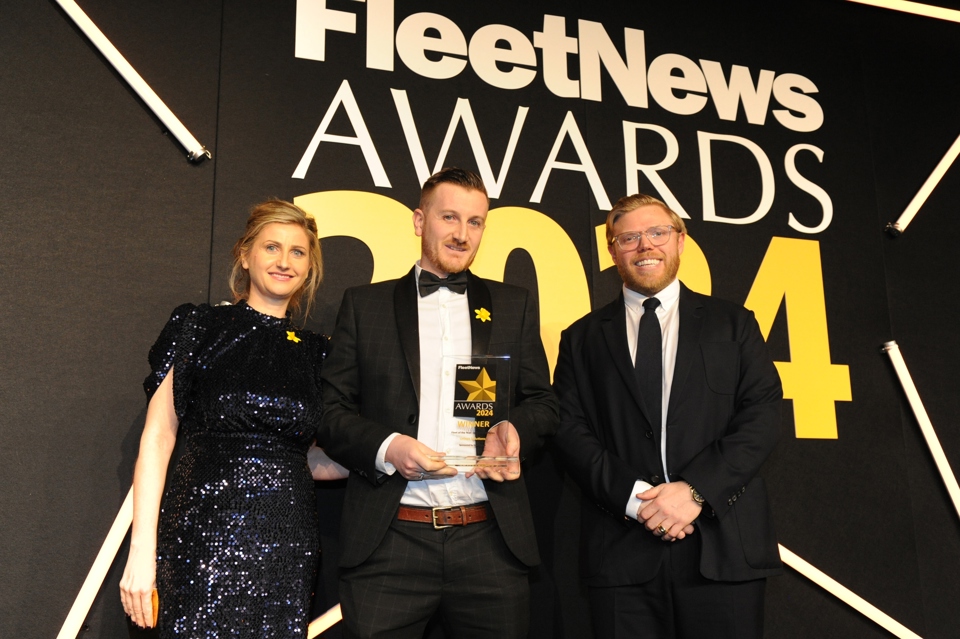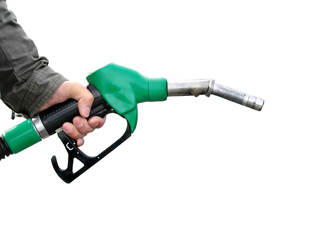Univar Solutions is driving a range of safety, compliance and operational improvements through better driver engagement and vehicle utilisation.
As a global supplier and distributor of chemicals, compliance is key for the winner of Fleet of the Year (up to 250 vehicles) at this year’s Fleet News Awards.
It means ensuring drivers are at the top of their game and its vehicles are up to the demands of the job.
Key is ensuring that drivers understand how a moment’s inattention may impact their safety and the safety of others.
“We try and drill that into our drivers,” says Edward Wilcox, UK transport manager at Univar Solutions.
“It’s important to make them realise that it might just be a split second of them doing something that they shouldn't do, that can cause changes to any individual's life.”
As a fleet, it is also working to achieve the Mission Zero quality standard, providing it with a roadmap towards the vision of zero collisions, zero emissions and zero prohibitions.
Furthermore, all vehicles are now fitted with telematics and this measure is linked to a driver bonus scheme to reward good performance behind the wheel.
Driver management
All drivers undergo an in-depth induction process which outlines all Univar Solutions’ policies and procedures, while drivers are buddied up with colleagues which allows the fleet team to assess and review their performance to ensure all instructions are understood. Any starter also goes on a training programme.
“Just because somebody seems okay on the surface, doesn't necessarily mean that they are,” Edward Wilcox
Univar Solutions has placed an emphasis on monitoring driving standards and spotting any trends early so it can take action before they become an issue.
Wilcox has also “tightened-up” scoring for drivers, putting even more emphasis on telematics data to determine if drivers receive a bonus.
No infringements and a ‘B’ score on the old system would see drivers qualify for the bonus, effectively rating them as an ‘A’, which Wilcox says was counterproductive.
“You’ve got drivers that are happy to sit on a ‘B’, because they know they’re not going to get penalised, whereas we’re now saying, if you want to be at the 'A' level then we should see a fuel saving as well.”
Driver documents are also checked periodically, while six-monthly driver declarations highlight any health conditions which may have changed along with any medication they are taking.
Monthly drivers’ meetings highlight safety advice, while video footage and images are used to deliver impactful messages.
Driver wellbeing is also a focus. “Just because somebody seems okay on the surface, doesn't necessarily mean that they are,” says Wilcox.
Drivers and all Univar employees have access to an employee support scheme offering a range of services, including mental health support.
Wilcox encourages drivers to open-up about issues which may be impacting them. He explains: “Previously, it might have just been that they were just sitting on it, not wanting to tell anybody. I think that’s what drivers tend to be good at, until one day they explode, and obviously, then we see it.
“By having a chat, you may find out that it’s not just work, it’s everything else that’s going on in their life and then you can steer them towards the employee support scheme.”
With 50-plus drivers to manage, Wilcox acknowledges that recruitment and retention can be difficult amidst a driver shortage in the industry.
“We want to keep people for as long as we can, especially HGV drivers,” he explains, “because there's nothing worse than training somebody up and two weeks later, they've decided to take another job.”
He adds: “We do a week's worth of training with every driver, and then the full-time drivers who go on to low pressure discharge, that can then turn into a month.”
It’s fleet team includes five transport managers and a fleet compliance manager, with Wilcox heading up the team as UK transport manager.
At the start of 2023, the company gave its transport coordinators the opportunity to develop into transport managers through measures such as on-the-job training as well as gaining their Transport Manager Certificate of Professional Competence (CPC) to allow career progression and a deeper understanding of issues affecting the fleet.
Choosing the right replacement cycle
Leasing a fleet of 50-plus vehicles, consisting of 26 26-tonne rigid trucks, two small rigids, 10 bulk tractor units, 11 inter site vehicles, 13 tankers and 35 trailers, Wilcox employs a seven-year replacement cycle for its rigids.
He says: “The debate when we go for the next round, when they are due for renewal in 2027, is going to be, do we do them for another seven years?
“Obviously, a lot changes in seven years – the DVS (Direct Vision Standard) has changed twice.”
With costs increasing as vehicles near the end of their term, Wilcox is debating whether to employ a shorter replacement cycle in the future.
“When they go in for inspections all of a sudden more work is required because they're getting older,” he says.
“With the tail lift you find that they need to have replacement parts and we then have to factor in that cost. I think there is a discussion to be had of whether seven years is too long.”
Tractor and inter-site units, as well as the bulk delivery vehicles have a four-year replacement cycle, trailers are seven years, and the tankers are 10 years.
Future-proofing vehicles against changes, like those introduced through the Direct Vision Standard, is an important consideration for Wilcox.
He says: “When we go for the contract renewals, there’s probably going to be a condition that says if for any reason legislation changes, we might get a credit back at the end of the term.”
Better utilisation of vehicles
Univar has introduced its own fleet of bulk tankers, which have reduced hire haulage on its bulk deliveries, while double-deck trailers have enabled a better utilisation of vehicles.
Journey planning improvements have allowed the fleet to identify the best vehicles for different jobs, as well as less empty running.
Wilcox explains that the footprint of loads, rather than the weight, was an issue as it delivered and collected intermediate bulk containers (IBCs).
With a single deck, he explains: “They wouldn't be able to double stack any empties on top, which would then mean we would have to get hauliers in to come and pick-up the empties loads and take them away.”
Double-deck trailers, however, have enabled the fleet to better manage collections and deliveries, and have been “key” to cutting costs and CO2 emissions.
Better vehicle utilisation has also been achieved through widening the remit of its ‘inter-site’ vehicles so that now carry out customer deliveries.
Wilcox explains: “We have what’s called value capture and the planners are targeted with an amount per year. This year, it was something like £150k in terms of savings from hired haulage by delivering with our own fleet and we’ve already surpassed that. I think we're now up to £200k.
“It’s little tweaks, little wins, reducing that empty running and effectively taking vehicles off the road.”
The company has also acquired more fuel-efficient tractor units, while the introduction of ‘mirrorless’ systems to reduce drag has cut fuel use.
Judges’ comments:
A well-managed and compliant fleet that has invested heavily in both its vehicles assets and its people. Excellent understanding of driver safety and welfare, while also addressing carbon emissions as part of a robust roadmap to decarbonisation.
Sponsor’s comments:
![]()
“We'd like to congratulate category winner Univar Solutions, highly commended JJX Logistics and all those shortlisted in this category including Fleetmaster Operational Support Services and Thomas Hardie Commercials along with all the other winners and finalists.
“At Herd we've spent years building a unique culture, built on a passion for customer care.
“Our Herd Synergy approach means you can blend our three key service lines to exactly suit the needs of your business. Herd Group is honoured to be the sponsor of this category at one of the most important industry awards shows.
“We look forward to continuing to support the fleet industry with our great value, bespoke fleet solutions and Herd Synergy approach for businesses of any size.”
























Login to comment
Comments
No comments have been made yet.